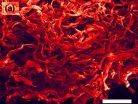(Press-News.org) 1. Task Force weighs evidence on diabetes screening
Researchers for the U.S. Preventive Services Task Force (USPSTF) have completed a systematic evidence review to inform an upcoming update of Task Force recommendations on screening asymptomatic, nonpregnant adults for type 2 diabetes. The review is published in Annals of Internal Medicine .
Approximately 21 million persons in the U.S. received a diabetes diagnosis in 2010 and an estimated 8 million cases went undiagnosed. Screening asymptomatic persons for diabetes may lead to earlier identification and earlier or more-intensive treatments, potentially improving health outcomes. Researchers reviewed studies published from 2007 through October 2014 to assess the benefits and harms of screening for type 2 diabetes, impaired fasting glucose, or impaired glucose tolerance among asymptomatic adults. The evidence suggests that screening asymptomatic, nonpregnant adults for type 2 diabetes could help to delay progression to diabetes by identifying those who could benefit from treatment of impaired fasting glucose and impaired glucose tolerance. However, screening did not improve mortality rates after 10 years of follow up.
In 2008, the USPSTF recommended that physicians should screen for type 2 diabetes in asymptomatic adults with treated or untreated sustained blood pressure greater than 135/80 mm Hg. This recommendation was based on the ability of screening to identify persons with diabetes and evidence that more-intensive blood pressure treatment was associated with reduced risk for cardiovascular events, including cardiovascular mortality, in patients with diabetes and hypertension. Since then, evidence shows that an intensive multifactorial intervention for screen-detected diabetes aimed at decreasing glucose and lipid levels and blood pressure was not associated with a reduction in risk for all-cause or cardiovascular mortality or morbidity compared with standard treatment. The USPSTF posted draft recommendations for public comment in October 2014. The Task Force is currently incorporating public comment to finalize those recommendations for future release.
Note: The URL will be live when the embargo lifts. For an embargoed PDF, please contact Megan Hanks at mhanks@acponline.org. To interview the lead author, please contact Tamara Hargens-Bradley at hargenst@ohsu.edu or 503-494-8231. To speak with someone from the USPSTF, please contact Ana Fullmer at newsroom@uspstf.net or 202-350-6668.
2. Survey: Proposed regulations may contradict patient attitudes towards medical research
Take the patient survey at http://www.annals.org/article.aspx?doi=10.7326/M15-0166
Results of a web-based survey suggest that patients prefer to be asked for permission to participate in observational and randomized research evaluating usual medical practices. However, patient attitudes regarding consent and risk disclosure may be in opposition to regulatory guidance being drafted by the U.S. Office for Human Research Protections (OHRP).
Researchers surveyed 1,095 U.S. adults sampled from an online panel and an online convenience river sample to determine their attitudes about risks and preferences for notification and consent for research on medical practices. The survey results suggest strong support for research that compares usual clinical practices to determine the best ways of treating a particular condition and willingness to participate in such research. Respondents favored being asked for permission to participate in research, regardless of whether it affects treatment decisions. The patients were willing to make tradeoffs between imposing full consent requirements if more elaborate notification or approaches to consent would prevent research from being conducted. These results seem to be in opposition to proposed OHRP guidance. The research is being published in Annals of Internal Medicine .
Note: The URL will be live when the embargo lifts. For an embargoed PDF, please contact Megan Hanks. To interview the lead author, please contact Susan Ipaktichian at susani@stanford.edu or 650-725-5375
3. Cancer experts: Too many patients being screened, diagnosed, and treated
Cancer experts from Memorial Sloan Kettering Cancer Center in New York and Tufts Medical Center in Boston, write that too many people are being screened, diagnosed, and treated for disease because they mistakenly believe they are at higher risk than they actually are. The authors call this the "Lake Wobegon Effect" after the fictional Midwestern town of above-average citizens featured in Garrison Keillor's A prairie Home Companion. Their commentary is published in Annals of Internal Medicine.
The authors argue that prostate cancer is a perfect example of the Lake Wobegon Effect and how it leads to overdiagnosis. Prostate cancer screening programs assume that all men are at average risk, when risk can be very strongly separated depending on PSA levels. For example, men in the top quartile of PSA levels at age 60 have a 20-times greater risk for prostate cancer death than those with lower PSA levels. Screening only men at high risk, rather than screening all men, drastically reduces screening harms in terms of overdiagnosis, but retains 100 percent of the screening benefits in terms of mortality reductions. The authors suggest that having a better understanding of the Lake Wobegon Effect will help physicians focus screening programs on patients who have the most to gain.
Note: The URL will be live when the embargo lifts. For an embargoed PDF, please contact Megan Hanks. To interview the lead author, please contact the media staff at Memorial Sloan Kettering Cancer Center at mediastaff@mskcc.org or 646-227-3573.
INFORMATION:
While a debate was raging between scientists and government regulators on how best to explain to patients the risks of participating in clinical research studies that compare standardized treatments, a team of bioethicists boldly went where no experts had gone before -- to the public.
What the respondents said surprised them: Keep it simple, but always ask permission, even when the research only involves gathering data from anonymized medical records.
"We didn't anticipate that people would want to grant permission for medical record searches, a research method that ...
ANN ARBOR--Research led by the University of Michigan Life Sciences Institute has identified a gene critical to controlling the body's ability to create blood cells and immune cells from blood-forming stem cells--known as hematopoietic stem cells.
The findings, scheduled for online publication in the Journal of Clinical Investigation April 13, provide new insights into the underlying mechanics of how the body creates and maintains a healthy blood supply and immune system, both in normal conditions and in situations of stress--like the body experiences following a bone ...
DALLAS, April 13, 2015--The American Heart Association (AHA) released new recommendations today to address gaps in common standards around comprehensive workplace wellness programs (CWWPs). The recommendations improve the design, measurement and recognition of CWWPs, and, if adopted by employers, could significantly impact efforts to improve the cardiovascular health of the American workforce.
An advisory panel of experts in population and workplace health, cardiology and preventive medicine conducted the review, which includes an extensive evaluation of workplace ...
WASHINGTON, DC - A medicinal liquid form of marijuana may show promise as a treatment for children with severe epilepsy that is not responding to other treatments, according to a study released today that will be presented at the American Academy of Neurology's 67th Annual Meeting in Washington, DC, April 18 to 25, 2015.
The study involved 213 people, ranging from toddlers to adults, with a median age of 11 who had severe epilepsy that did not respond to other treatments. Participants had Dravet syndrome and Lennox-Gastaut syndrome, epilepsy types that can lead to intellectual ...
Tropical Cyclone Solo was dissipating over the Southwestern Pacific Ocean when NASA's Aqua satellite passed overhead on April 13, 2015.
On April 11 Tropical Cyclone Solo spawned warnings in New Caledonia as it passed by. By April 12, the warnings were dropped and wind shear had taken its toll on the storm weakening it.
On April 12 at 0300 UTC (April 11 at 11 p.m. EDT), the Joint Typhoon Warning Center (JTWC) issued their final bulletin on Solo. At that time it was 116 nautical miles north of Noumea, New Caledonia near 20.2 south latitude and 165.7 east longitude. Solo ...
Skin is remarkably resistant to tearing and a team of researchers from the University of California, San Diego and the Lawrence Berkeley National Laboratory now have shown why.
Using powerful X-ray beams and electron microscopy, researchers made the first direct observations of the micro-scale mechanisms that allow skin to resist tearing. They identified four specific mechanisms in collagen, the main structural protein in skin tissue, that act together to diminish the effects of stress: rotation, straightening, stretching, and sliding. Researchers say they hope to replicate ...
TAMPA, Fla. - Moffitt Cancer Center researchers have developed a new method to identify a previously unknown structure in a protein called MDMX. MDMX is a crucial regulatory protein that controls p53 - one of the most commonly mutated genes in cancer.
Known as the tumor suppressor gene, p53 protects the body from cancer development by ensuring that DNA remains intact and does not have mutations. If p53 senses DNA damage, it can either stimulate the cells to repair its DNA, or cause cells to stop growing and undergo cell death. Because of its functions, p53 is often ...
ATLANTA--Chimpanzees are capable of some degree of planning for the future, in a manner similar to human children, while some species of monkeys struggle with this task, according to researchers at Georgia State University, Wofford College and Agnes Scott College.
Their findings were published on March 23 in the Journal of Comparative Psychology.
The study assessed the planning abilities of chimpanzees, two monkey species (rhesus macaques and capuchin monkeys) and human children (ages 28 to 66 months old) using a computerized game-like program that presented 100 unique ...
A workplace intervention designed to reduce work-family conflict gave employed parents more time with their children without reducing their work time.
"These findings may encourage changes in the structure of jobs and culture of work organizations to support families," said Kelly Davis, research assistant professor of human development and family studies.
The research is part of the Work, Family and Health Network's evaluation of the effects of a workplace intervention designed to reduce work-family conflict by increasing both employees' control over their schedule ...
(Boston) - Emergency departments (ED) provide a promising venue to address opioid deaths with education on both overdose prevention and appropriate actions in a witnessed overdose. In addition, ED's have the potential to equip patients with nasal naloxone rescue kits as part of this effort.
These findings are from a study published in the Western Journal of Emergency Medicine, and is the first study to demonstrate the feasibility of ED-based opioid overdose prevention education and naloxone distribution to trained laypersons, patients and their social network.
In ...

